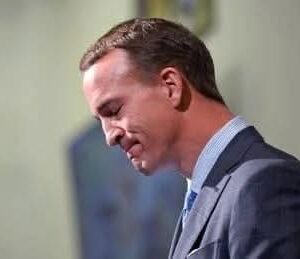So we were just doing a regular grocery run—nothing major. My daughter, Suri, was in one of her chatty moods, sitting in the cart and narrating everything she saw like it was a nature documentary.
Anyway, we get in line behind this man—maybe late 60s, definitely gray hair, wearing a cardigan like my grandpa used to. Suri looks right at him, squints, and goes loudly, “Mommy, that’s an old person!”
I wanted the ground to swallow me. I apologized instantly, like, “I’m so sorry, she’s just very curious—didn’t mean to be rude.”
But the man just smiled. Not in a fake way, either. He leaned a little closer and said, “Well, she’s not wrong. I am old. I’ve had 68 birthdays, and each one taught me something new.”
Suri blinked and asked, “Like what?”
He chuckled and said, “Like how not to be afraid of telling the truth.”
I wasn’t expecting that. I laughed a little, nervously, but he kept going. He told her how when he was younger, he’d dye his hair and try to keep up with “younger folks” just so people wouldn’t treat him differently. “Didn’t work,” he said. “But you know what? Being old is actually kinda cool.”
Then he turned to me and said something that just stopped me cold.
I don’t even know what made him say it, or if it was just a coincidence, but it hit way too close to home.
He said, “Some of us don’t have grandkids to tell us the truth like that anymore. So… thank her for me.”
I just stood there for a moment, feeling my throat tighten. My own father passed away a couple of years ago, not long before Suri was born. He never got to meet her. So hearing this stranger—this older man—speak so kindly about children and truth, it stirred something deep inside me. I thanked him and introduced Suri properly. “This is Suri, and I’m Rae,” I said. “Thank you for being so understanding.”
He nodded, placed his groceries on the conveyor belt, and offered a soft grin. “Name’s Mr. Caldwell. Nice to meet both of you.” He gave Suri a little wave, and she responded with a bright “Hi!”—as if forgetting she had just pointed out his age.
When it was my turn to pay, Suri couldn’t stop asking Mr. Caldwell questions. She asked him if he liked cartoons, if he had pets, or if he could ride a bicycle. I apologized for her curiosity, but he waved me off. “I love questions,” he said. “Ask away.” He answered them all with impressive patience. “I still watch funny shows on TV,” he confessed, “even if my grandkids think I’m stuck in the ’70s.”
We ended up leaving at the same time, and as we walked out, Mr. Caldwell told Suri, “You know, I’m old—but I think that’s pretty cool. Wanna know why?” Suri nodded like an eager little student. “Because it means I’ve lived through so many stories. And let me tell you, nothing beats having a story to share.”
That line echoed in my head as I loaded our groceries into the car. Maybe it was the newness of spring in the air, or maybe it was the reminder of my dad, but I took a shot. “Mr. Caldwell,” I said, “would you like to meet us for coffee sometime? I know it’s random, but Suri seems pretty taken with you.” The words tumbled out before I could talk myself out of it. I half expected him to politely decline—after all, we were strangers who’d met by chance in a grocery line.
He paused, then his face broke into a wide, toothy grin. “I’d love that,” he said. “I haven’t had a coffee buddy in a while.”
A few days later, we met at a little café near the park. Suri was enthralled by the prospect of having an “adult friend”—she boasted about it all morning, telling me she “couldn’t wait to see the old man again.” I cringed at her phrasing but tried to accept that honesty from children, though sometimes awkward, can be strangely refreshing.
Mr. Caldwell arrived right on time. He greeted Suri with a playful fist bump that made her giggle. We settled into a little corner table, and he ordered tea instead of coffee. “I can’t handle too much caffeine these days,” he joked, patting his chest. “My heart might skip one beat too many.”
As we chatted, I learned he used to be a teacher—sixth-grade social studies for 30 years. He talked about the challenges of teaching kids at that age, how they were just starting to figure out who they were. He shared funny stories of how his students would prank him by hiding notes under his desk or putting stickers on his lunch bag. The more he spoke, the more I realized how much he genuinely loved children’s energy and curiosity.
Suri, always the chatterbox, piped in. “I think I’d be a good student, right?” She asked him, eyes wide, as if she really wanted his approval. He nodded. “I bet you’d be a superstar in my class,” he said, smiling.
We must’ve spent almost an hour there, sipping drinks and sharing little slices of our lives. Eventually, Mr. Caldwell said something that caught me off guard. He quietly mentioned he’d lost his wife a few years earlier. They never had kids of their own. She had a daughter from a previous marriage, but that daughter lived across the country, and they weren’t in close contact. “Not by my choice,” he added, a hint of sadness coloring his words. “Life just pulls us in different directions sometimes.”
In that moment, I understood why my daughter’s frankness felt like a gift to him. Children see things for what they are—unfiltered, raw. Suri saw an older man and stated it. He saw a curious child and celebrated it. It was a simple, truthful exchange between two different worlds, and it created a bridge.





